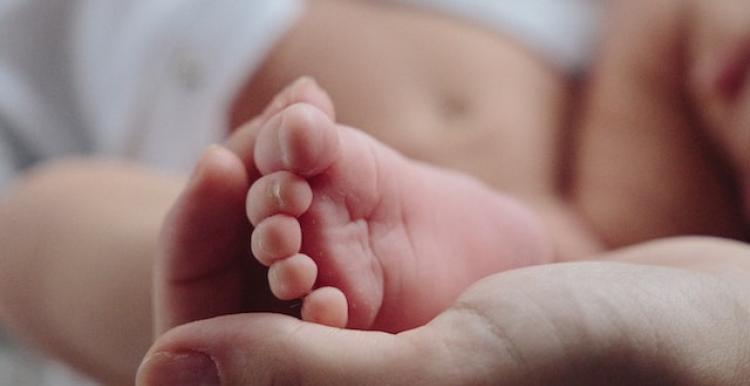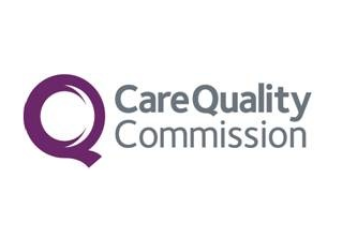National survey shows better mental health support for pregnant women and new mothers, but more work is needed to ensure a positive maternity experience for all

The findings of a survey by the Care Quality Commission (CQC) of nearly 19,000 people who used NHS maternity services in 2024 shows some areas of improvement over the past year, particularly regarding access to mental health support. However, there remain other aspects of maternity care where people report a poorer experience and where analysis indicates a longer term decline in positive feedback over time.
Published Thursday 28 November 2024, the findings of CQC’s latest annual national maternity survey capture what women who gave birth in February 2024 felt about the care they received while pregnant, in hospital during and after labour, and once at home in the weeks following the arrival of their baby.
This year’s results show that more women were asked about their mental health during antenatal check-ups compared to last year and that there has been steady improvement seen in this question area over the past five years.
More than three quarters (76%) of respondents said they were ‘definitely’ asked about their mental health during antenatal check-ups compared with 75% who said this in 2023. A large majority (93%) of respondents also reported that a midwife asked them about their mental health during their postnatal care.
Having access to enough support for mental health during pregnancy has also improved. Eighty-nine per cent of people surveyed said they received mental health support as part of their antenatal care compared with 88% in 2023, and 85% in 2022.
Many people continued to report positively about their interactions with maternity staff while pregnant. Most of those surveyed (83%) said that their midwives ‘always’ listened to them, that they were ‘always’ spoken to in a way they could understand (88%), and they were ‘always’ treated with respect and dignity (87%). A similarly large proportion of respondents (80%) said they were ‘always’ involved in decisions about their antenatal care.
In 2024, more people surveyed felt they were given appropriate information on the risks associated with an induced labour prior to being induced (74% in 2024 compared to 69% in 2023). Respondents reporting that their partner or someone else close to them was able to stay as much as they wanted in hospital after the birth also increased from 56% in 2023 to 63% in 2024.
However, for many of those responding to the survey, there were parts of their care that fell below expectations. For a number of questions long term satisfaction has fallen and there is a notable downward trend in positive experience when looking at comparable survey data for the past five years (2019 – 2024).
Confidence and trust in staff providing antenatal care has fallen over time. In 2024, 70% said they ‘definitely’ had confidence and trust in staff compared with 71% in 2023. There has also been a similar decline in the number of people who said they ‘definitely’ had trust and confidence in staff during labour and birth (77% in 2024 from 78% in 2023) and postnatally (69% in 2024 from 72% in 2023).
Fourteen per cent of respondents said staff did not do everything they could to help manage pain during labour and birth. Furthermore, a quarter (25%) of respondents felt they did not have the opportunity to ask questions after their baby was born, and only 58% of people surveyed said they were ‘always’ given the information and explanations needed (compared to 60% in 2023).
There has also been a five year downward trend in the number of people reporting that they were ‘always’ able to get help from staff during labour and birth (64% in 2024) and in those who said they were ‘always’ spoken to by staff in a way they could understand (85% in 2024).
Just over half (60%) of people surveyed said they saw or spoke to a midwife as much as they wanted after the birth (down from 63% in 2023). And fewer reported ‘always’ feeling listened to by staff providing postnatal care after leaving hospital (75% in 2024 compared to 77% in 2023).
Subgroup analysis of this year’s survey results show that women who reported their ethnicity as ‘Indian’, ‘Pakistani’ and ‘any other White background’ reported poorer experiences including not feeling listened to and not receiving help during their antenatal and postnatal care. Women with a long-term mental health condition reported poorer experiences around feeling listened to during their antenatal care as well as in the confidence and trust they felt in the staff caring for them during labour and birth.
Nicola Wise, CQC’s Director of Secondary and Specialist Care, said:
“It is encouraging to see areas of maternity care where people are having an improved experience. There has been a notable increase in the number of women who were asked about their mental health and received relevant support and that is a real positive.
“It is disappointing however, that for some women the care they received fell short of expectations and that trust in staff has fallen. Looking back at the results from the past five years there has been decline in those able to get enough help and support during labour and birth, in access to pain relief while in labour, and the availability of information and support after giving birth and during subsequent postnatal appointments.
“We know from our own inspections that there is a variation in quality of maternity services and that further work is needed to ensure high quality of care across the board for all women and their families. Increased national action and additional capital investment to support staff to deliver the high-quality care they want to provide for mothers and babies every time should be a priority. We hope trusts will reflect on their individual survey results and use them to help identify where they can make changes to ensure positive experiences within maternity care.”
Press release courtesy of: Care Quality Commission


